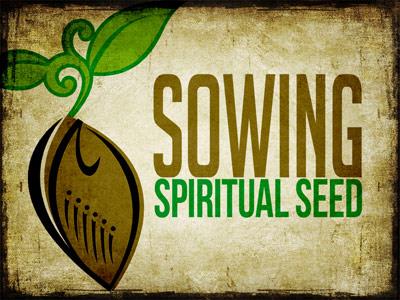-
Leaven, For Good Or Ill
Contributed by W Pat Cunningham on Oct 14, 2022 (message contributor)
Summary: The yeast is there working, but it is not visible. It works in the whole loaf, and best in darkness.
Friday of 28th Week in Course 2022
It’s important when we hear this Gospel from St. Luke that we position the event in the journey of Jesus to Jerusalem. Remember, Our Lord knows that He is going to Jerusalem for what on Mt. Tabor was called His Passover by Moses and Elijah. He is going up to suffer and die for the forgiveness of the sins of the world. The last thing we heard before this chapter was His denunciations of the scribes and Pharisees, the Jewish leaders, and the resulting hostility they bore toward Him. “They were plotting to catch Him at something He might say.”
Moreover, the Jewish people outside Jerusalem were responding positively to the Lord’s words, so much so that some of the crowd were being injured in the crush. Jesus was a rock star in His time and place, and the Jewish leaders were threatened by His popularity. So He gathers His disciples around and tells them to beware of the hypocritical “leaven” of the Pharisees.
Now the art of baking leavened bread and cakes seems to be disappearing from our families, but our family’s preparation of Sunday cinnamon rolls on Saturday is still part of the stories told about our daughters’ childhood. Yeast breads involve taking warm yeast suspension and slowly kneading it through the flour-water-sugar mixture. Once the little microbes are activated by the warm water, they eat the surrounding sugar and get energy from it by a chemical reaction that generates carbon dioxide as a by-product. That gas is expressed as little bubbles that make the dough rise. The yeast has to be throughout the dough, and it in a real sense corrupts the dough.
Now the yeast is there working, but it is not visible: it’s a microorganism. But the secret reveals itself by making the dough rise in the pan, and by showing holes in the finished bread. The yeast works best in a dark place, so as the bread rises, you cover it with a towel. Likewise, Jesus tells us that anything we have done in secret, in darkness, will ultimately be revealed. Just think of politicians who have done something wicked in hiding, and then years later are disclosed by chance or design, and fall from power.
When you bake the bread, the yeast cannot stand the heat. It all dies. That’s why to make sourdough bread, you have to take some of the dough out before you bake, and store it in a cool, dark place to leaven the next loaf you make. So Jesus wraps up His little parable by appealing to His listeners’ experience with death. Certainly they are afraid to die. The Christians who heard the story retold by the apostles thirty or so years later were also afraid. But if the magistrate had them killed, as they killed Jesus, the story isn’t over if the disciples were faithful to Jesus as Jesus was faithful to the Father. No, because not only would they be accepted into the divine presence after “falling asleep,” their sacrifice would inspire others to believe in Jesus and His Church.
No, the ones to fear is the one who could tempt us to deny Christ, to sin grievously, and then engineer our death anyway. That takes us to Gehenna, which was a dreaded garbage dump outside Jerusalem, a symbol of hell and total, eternal absence from God. No, persecution and death aren’t the worst thing. Denying Jesus, whether in our routine lives or during an active persecution, is absolutely the worst thing. The Holy Spirit is God's gift to guarantee with our cooperation that we will remain faithful. Dear God, keep us faithful and witnessing to Jesus, Your Son, all during life.

 Sermon Central
Sermon Central



